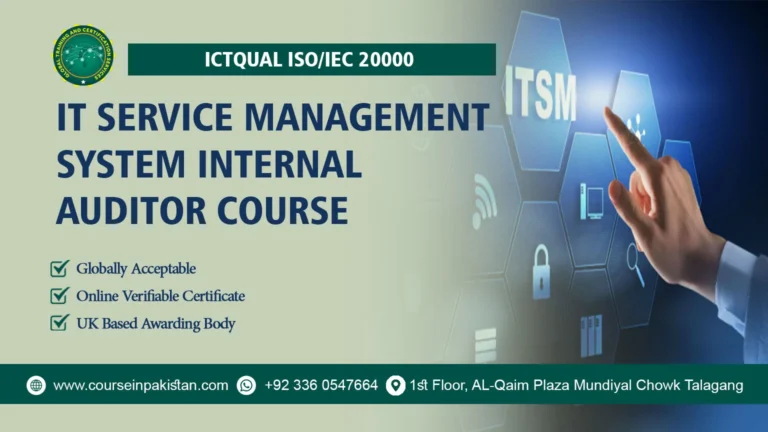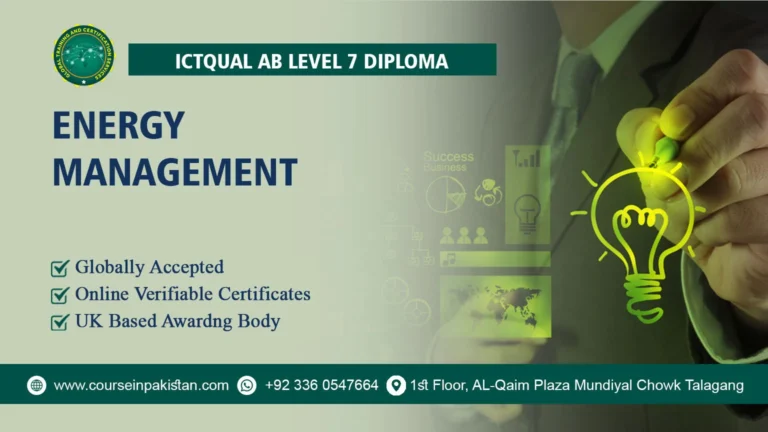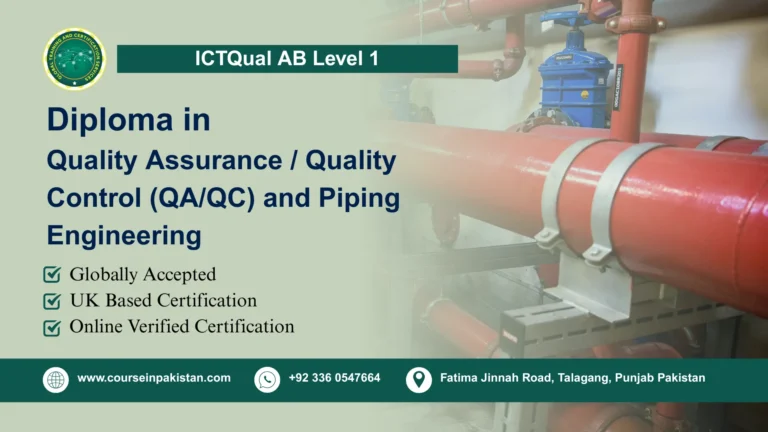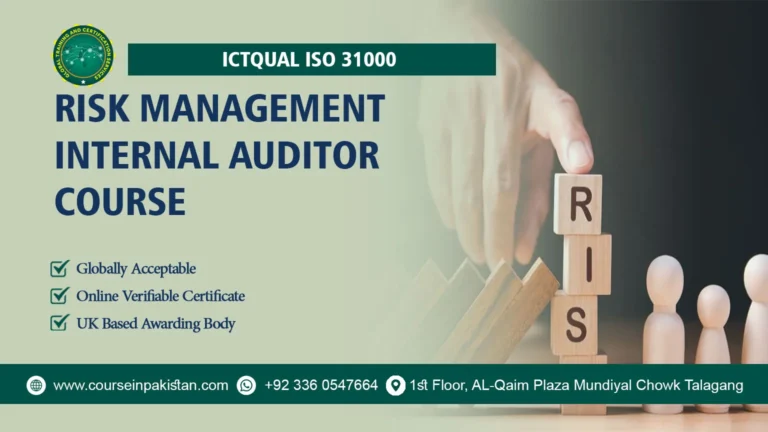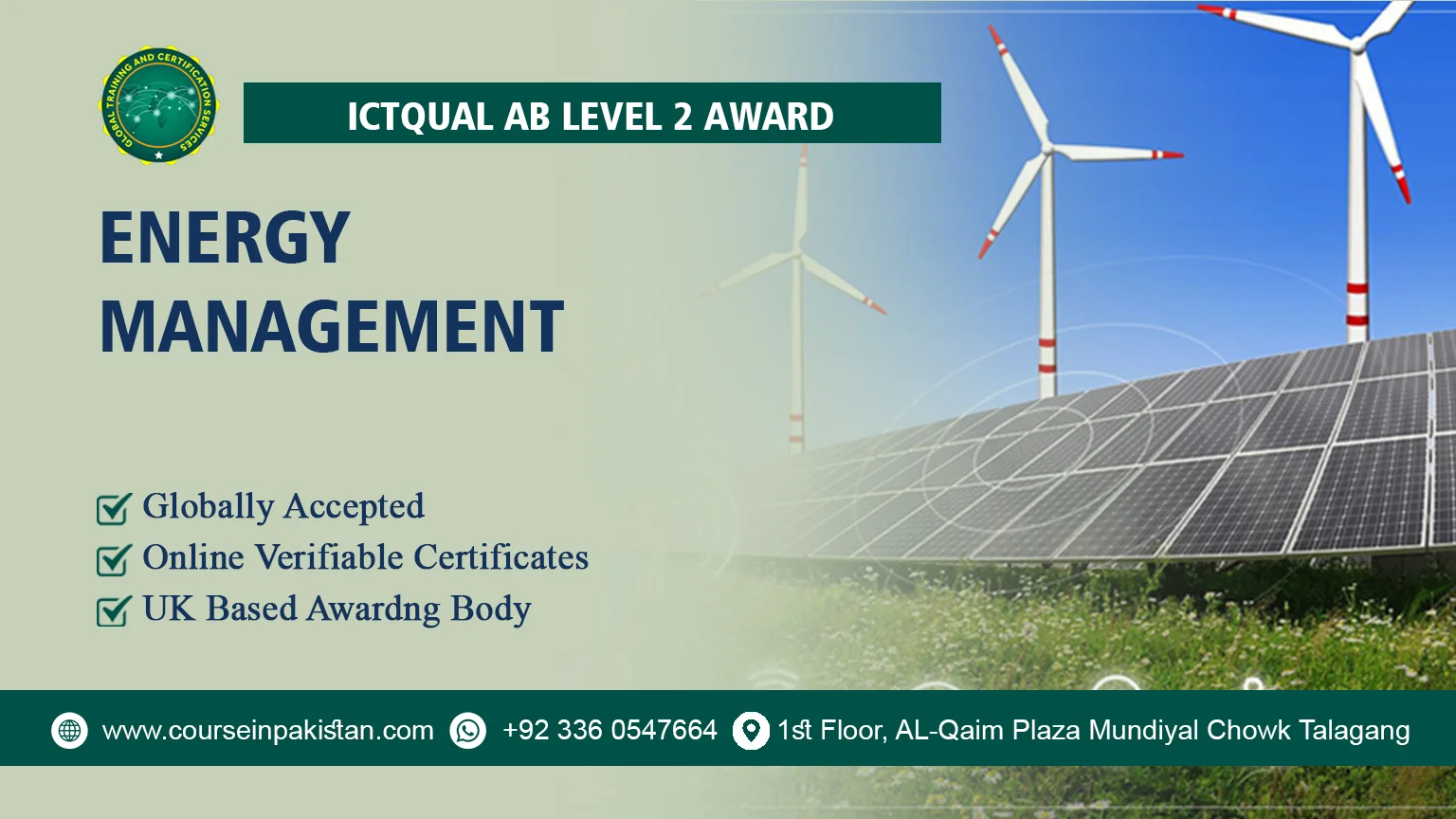
ICTQual Level 2 Award in Energy Management
In today’s rapidly evolving world, where environmental sustainability and operational efficiency are crucial, the Level 2 Award in Energy Management stands out as a foundational qualification for professionals aiming to make a positive impact in energy conservation and resource optimization. This award equips participants with essential skills and knowledge to understand, manage, and improve energy performance within various organizational settings.
Course Introduction
The Level 2 Award in Energy Management introduces participants to the fundamental principles and practices of energy management. It provides a solid foundation for understanding the importance of energy efficiency, sustainability goals, and compliance with regulatory standards. This course is ideal for individuals looking to begin their journey in energy management or enhance their existing knowledge in the field.
Course Overview
Participants in the Level 2 Award program explore key topics essential for effective energy management:
- Energy Management Fundamentals: Introduction to energy sources, consumption patterns, and environmental impacts.
- Energy Efficiency Strategies: Techniques to reduce energy consumption, optimize processes, and minimize waste.
- Renewable Energy Integration: Basics of renewable energy sources and their integration into existing energy systems.
- Energy Auditing and Analysis: Introduction to energy auditing techniques to identify inefficiencies and recommend improvements.
Course Benefits
- Foundational Knowledge: Gain a comprehensive understanding of energy management principles and practices.
- Career Development: Enhance employability with a recognized qualification that demonstrates competency in energy efficiency.
- Cost Savings: Implement strategies to reduce energy consumption, lower operational costs, and improve financial performance.
- Environmental Responsibility: Contribute to sustainability goals by promoting energy-efficient practices and reducing carbon footprint.
Course Study Units
The Level 2 Award typically includes study units such as:
- Fundamentals of energy management
- Energy consumption awareness in the workplace
- Reducing energy consumption in the workplace
- Importance of collecting and managing energy data
- Energy consumption in buildings and processes
- How energy use equipment and systems operate
- Importance of energy audits and assessments in the workplace
- Legislative and regulatory requirements covering energy
- Importance of an organisation’s energy strategy, planning and policy
- Role of design, installation and commissioning of energy use equipment and systems
- Use of operational and maintenance controls to operate the energy use equipment and systems efficiently
Learning Outcomes
Fundamentals of Energy Management
- Learning Outcomes:
- Understand the basic principles and concepts of energy management.
- Identify key factors influencing energy use and consumption.
- Gain awareness of the importance of energy efficiency and sustainability in organizational operations.
Energy Consumption Awareness in the Workplace
- Learning Outcomes:
- Increase awareness among employees regarding energy consumption and its impact.
- Promote behaviors and practices that contribute to energy conservation.
- Foster a culture of energy efficiency and responsibility within the workplace.
Reducing Energy Consumption in the Workplace
- Learning Outcomes:
- Implement strategies and initiatives to reduce energy consumption in various workplace settings.
- Identify and prioritize areas for energy efficiency improvements.
- Measure and track energy savings achieved through reduction initiatives.
Importance of Collecting and Managing Energy Data
- Learning Outcomes:
- Understand the importance of collecting accurate energy data for effective energy management.
- Implement systems and processes to monitor and manage energy data.
- Analyze energy data to identify trends, anomalies, and opportunities for improvement.
Energy Consumption in Buildings and Processes
- Learning Outcomes:
- Assess energy consumption in buildings and industrial processes.
- Identify energy-intensive areas and processes that offer potential for efficiency improvements.
- Implement measures to optimize energy use in buildings and industrial operations.
How Energy Use Equipment and Systems Operate
- Learning Outcomes:
- Understand the operation and function of energy use equipment and systems.
- Identify components that influence energy efficiency and performance.
- Optimize equipment operation to minimize energy consumption and maximize efficiency.
Importance of Energy Audits and Assessments in the Workplace
- Learning Outcomes:
- Conduct energy audits and assessments to evaluate current energy performance.
- Identify energy-saving opportunities and recommend improvements based on audit findings.
- Implement action plans derived from audit results to achieve energy efficiency goals.
Legislative and Regulatory Requirements Covering Energy
- Learning Outcomes:
- Understand legislative and regulatory frameworks related to energy management and efficiency.
- Ensure compliance with relevant laws and regulations governing energy use and conservation.
- Implement measures to mitigate risks and liabilities associated with non-compliance.
Importance of an Organisation’s Energy Strategy, Planning and Policy
- Learning Outcomes:
- Develop and implement an effective energy strategy aligned with organizational goals.
- Plan and prioritize energy management initiatives based on strategic objectives.
- Establish policies and procedures to guide energy management practices and decision-making.
Role of Design, Installation and Commissioning of Energy Use Equipment and Systems
- Learning Outcomes:
- Understand the role of design, installation, and commissioning in energy efficiency.
- Ensure energy-efficient design principles are incorporated into equipment and system installations.
- Verify proper commissioning to optimize performance and minimize energy waste.
Use of Operational and Maintenance Controls to Operate the Energy Use Equipment and Systems Efficiently
- Learning Outcomes:
- Implement operational and maintenance controls to optimize energy use and efficiency.
- Establish routine maintenance schedules and procedures to ensure equipment operates at peak efficiency.
- Monitor and adjust operational controls to respond to changing energy demands and conditions.
These learning outcomes are designed to equip individuals with the knowledge and skills necessary to effectively manage energy resources, implement sustainable practices, comply with regulations, and achieve operational efficiency within organizational settings.
Who Is This Course For?
The Level 2 Award in Energy Management is suitable for:
- Entry-Level Professionals: Seeking to start a career in energy management or sustainability.
- Facility and Operations Managers: Interested in improving energy efficiency and reducing costs within their facilities.
- Environmental and Sustainability Officers: Responsible for promoting and implementing energy-saving initiatives.
- Students and Graduates: Looking to enhance their knowledge and skills in energy management.
Future Progression for This Course
Graduates of the Level 2 Award can progress in various ways, including:
- Advanced Certifications: Pursue higher-level certifications such as Certified Energy Manager (CEM) or LEED Green Associate.
- Specialized Training: Participate in workshops or courses focusing on specific aspects of energy management or renewable energy.
- Career Advancement: Secure roles with greater responsibilities in energy management, sustainability consulting, or environmental compliance.
- Further Education: Pursue advanced degrees in fields such as Energy Management, Environmental Science, or Sustainable Development.
The Level 2 Award in Energy Management serves as a springboard for individuals passionate about energy efficiency and sustainability. By equipping participants with foundational knowledge and practical skills, this award enables them to initiate positive changes within organizations, reduce costs, and contribute to global environmental goals. Embrace the opportunity to begin your journey in energy management and make a meaningful impact with the Level 2 Award in Energy Management.


